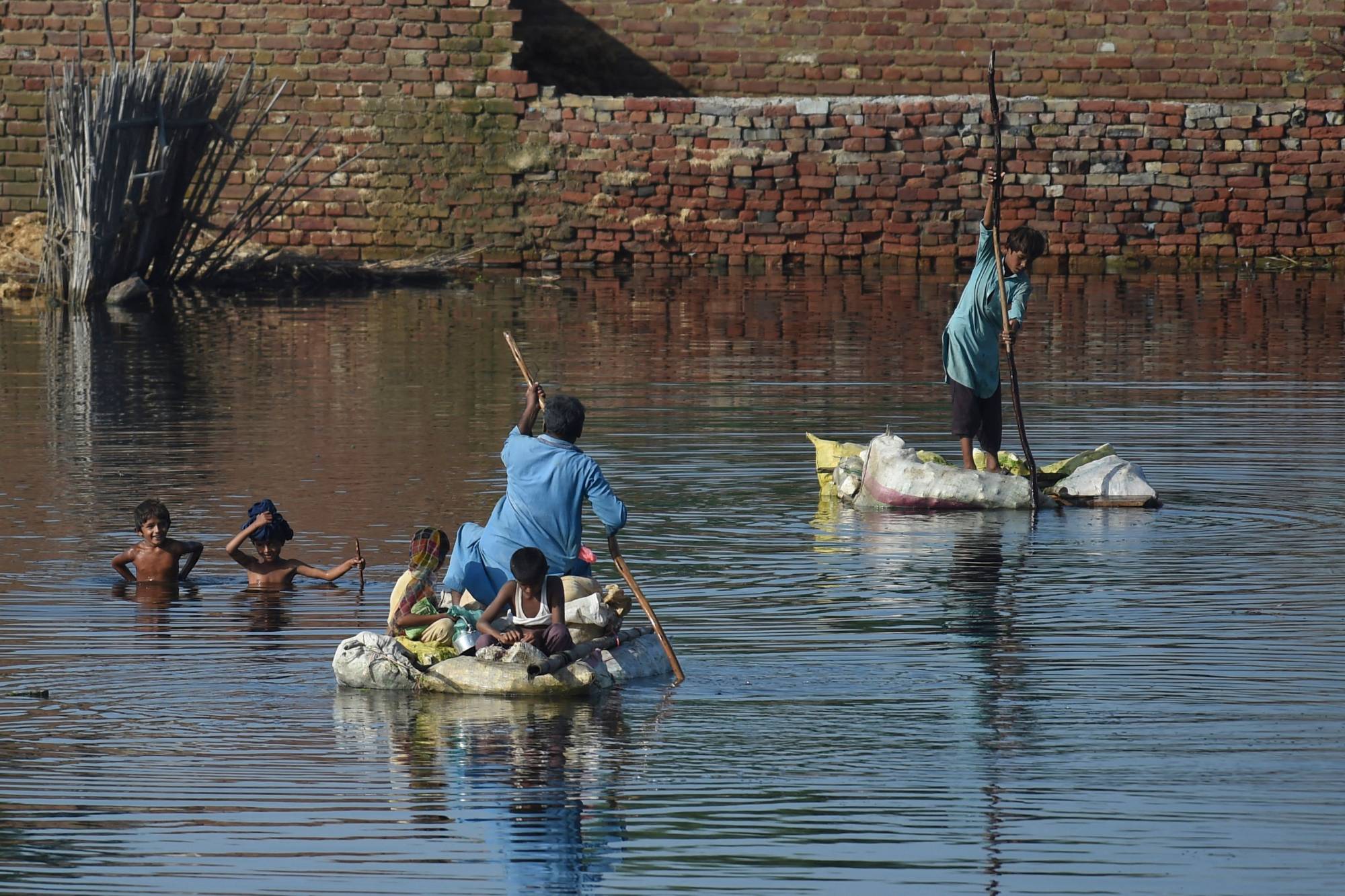A third of Pakistan is underwater, with at least 1,208 people dead — including 416 children — but monsoon rains "on steroids," likely fueled by climate change, are not the only cause of the nation's misery.
As with many of the increasingly common disasters around the world, problems from a lack of investment in warning systems to the building of homes in danger zones and a failure of political will to cut fossil fuel use are key drivers, analysts said.
"Disasters are not natural. We are contributing to them with our actions and our inactions," said Zita Sebesvari, who leads work on environmental vulnerability at the United Nations University (UNU) in Germany.

















With your current subscription plan you can comment on stories. However, before writing your first comment, please create a display name in the Profile section of your subscriber account page.